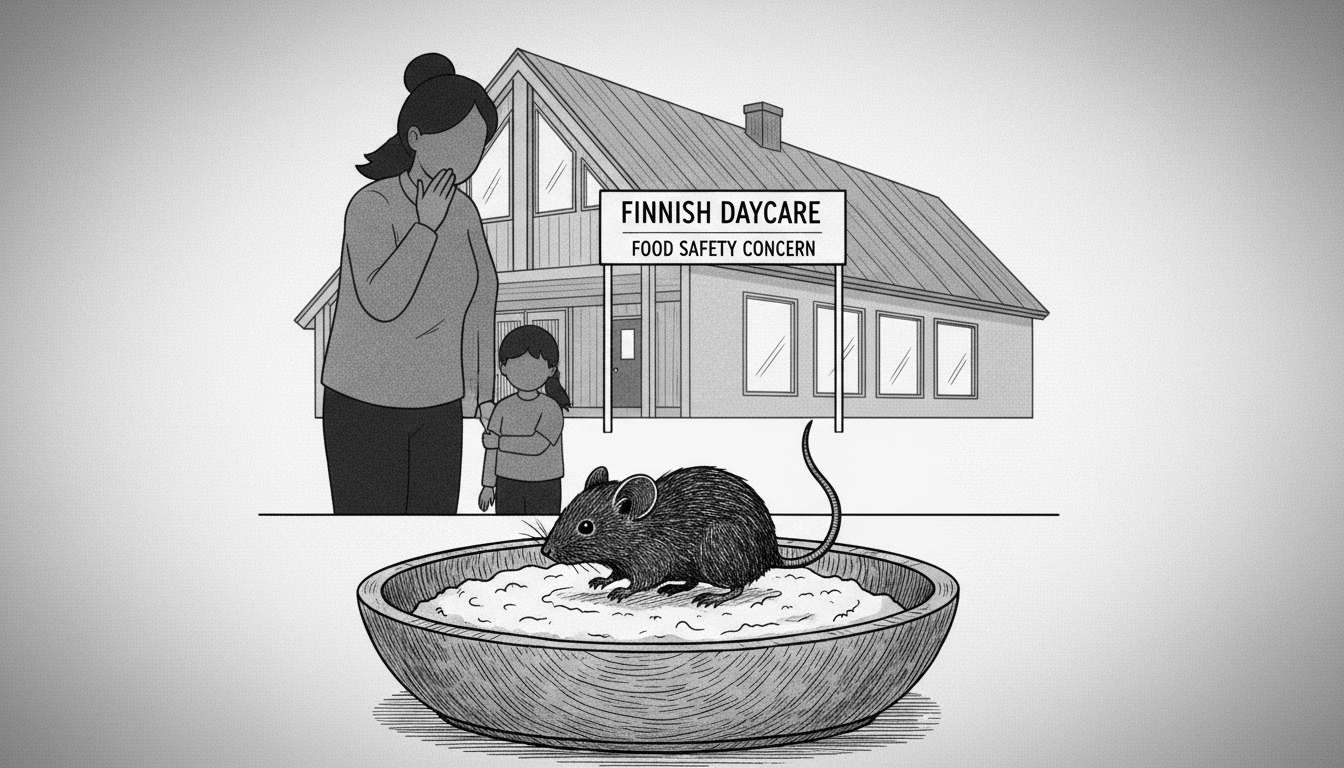A rodent discovered in food at a daycare center in Oulu, Finland, has been identified as a young field vole rather than a mouse. The animal was found mixed in with pasta served to children at the Haukipudas Asema daycare facility.
The food service company ISS confirmed the incident through their business director Veli-Pekka Kortelainen. He explained that the animal was a very young field vole. Kortelainen noted that a baby field vole measures only slightly larger than capelli pasta.
According to published menus, the daycare served boiled capelli pasta with minced meat or vegetable sauce for lunch on Monday. The city of Oulu reported that 59 people had already been served food from the same batch delivered to various locations.
Food service stopped immediately when staff discovered the rodent in the pasta. Further investigation revealed the animal was actually a vole rather than a mouse.
The incident has prompted stricter safety measures at ISS. The company has suspended use of that specific pasta type across all its operations. The wholesale supplier Kespro has also launched its own investigation into how the vole entered the food supply chain.
This incident highlights ongoing challenges in Finland's highly regarded food safety system. Finnish daycare centers typically maintain excellent hygiene standards, making this discovery particularly surprising. The country's food safety authorities have built an international reputation for strict protocols and regular inspections.
Parents expressed understandable concern about the discovery. Many questioned how a rodent could pass through multiple quality control checks in a professional food service operation. The daycare center has assured parents that all remaining food from the batch was immediately discarded.
Food safety experts note that while such incidents are rare, they can occur even in well-regulated systems. Field voles are common in Finnish fields and forests, particularly during summer months. Their small size makes detection challenging during food processing.
The food service company faces potential reputational damage and possible regulatory scrutiny. Finland's food safety authority is likely to review the incident and may conduct additional inspections at the facility. Similar past incidents in Nordic countries have resulted in temporary operational suspensions and mandatory staff retraining.
This case serves as a reminder that even advanced food safety systems require constant vigilance. Both the catering company and food supplier must now demonstrate how they will prevent future occurrences. Parents and regulatory authorities will be watching closely as both companies implement their promised safety improvements.

